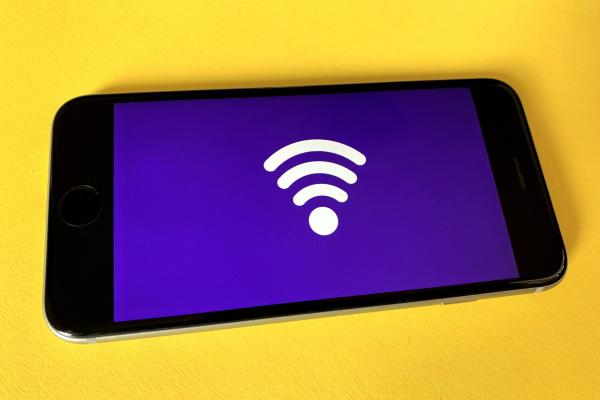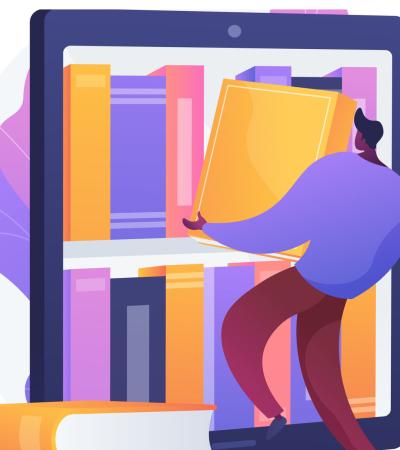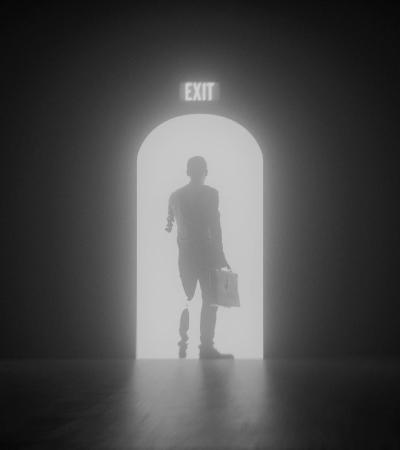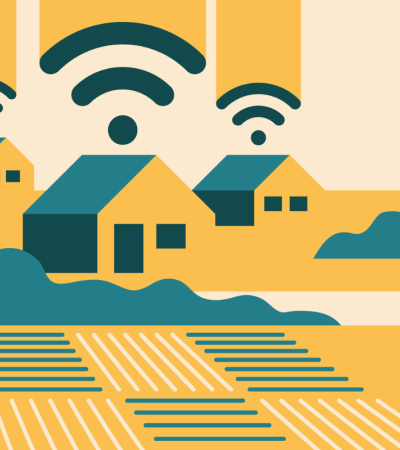The COVID-19 pandemic uncovered the realities of the digital divide in communities across the United States. As schools and jobs went online, libraries became an increasingly important destination for patrons who needed to connect to the internet. Libraries offered Wi-Fi hotspots and, in some instances, parking lots became offices. Community Connect: Digital Access at Home, an initiative of ALA and Capital One Bank, offered grants and resources to help support digital access in rural communities nationwide.

Lee-Whedon Memorial Library in Medina, New York, one of 20 Community Connect libraries, began offering hotspots for checkout in January 2021. With a service population of 11,000, the library’s hotspots quickly took off, with patrons using them for everything from homework to shopping for presents online. Samantha Covis, assistant director at Lee-Whedon Memorial Library, spoke about the positives of offering the hotspots to the Medina community and the importance of internet connection, not just for work or school, but for everyday needs.
How did you spread the word to your community that the library was offering Wi-Fi hotspots? Especially if you were trying to reach folks without internet at home already?
It helps being a small community because news of the hotspots spread effectively just from word of mouth. We also did online marketing. Of course, people without internet at home couldn’t see these advertisements, but their colleagues, friends and family members could see the marketing online and let them know of the opportunity.
We also offered pamphlets in the library with related program information and hotspot checkout information. We don’t have a local newspaper, but we have a pennysaver, a free advertising paper, that we posted advertisements in. We worked with a local nonprofit, the Office for the Aging, to spread the word to older folks in the community.
The first person to check out a hotspot just so happened to be standing outside our building using the building Wi-Fi, and they saw a flyer advertising the hotspots. It was a great coincidence!
How is your community responding to the hotspots?
We had a time when the hotspots were very popular, and it was hard to get them to everyone who needed them, especially if they needed connection for timed meetings or something with a set schedule. It’s relaxed a bit now, and we don’t have a long holds list for them anymore. I’ve noticed the ages of people who check them out tend to be a bit older, but we also have seen quite a few people in their twenties and thirties.
We have a loyal group of consistent users, with around 20 percent checking them out very frequently. This group will repeatedly check out a hotspot if there is one available.
We have five hotpots and, as of today, they have been circulated 88 times throughout the community. They’re almost never here! As soon as one returns, it goes back out right away. Our policy states that you can’t renew them, but if you return and there’s no waiting list, you can check it out again.
We are a rural area, and the local internet service just won’t go to certain parts of the community. It’s common for there to be just one house on a street and the internet won’t reach it. The hotspots are a great option for those people, even for one-time things like if there’s a brief internet outage and you need a backup. They really work to fill those gaps.

That’s a great point about hotspots filling gaps in the community. Do you have any specific stories or examples of this?
Sure! One patron used the hotspot to get directions in their car when their GPS stopped working. I’ve had a few people tell me they take them when they’re traveling as a backup internet connection in case of an emergency.
One cool story is that we had a local job development agency check them out to use at a job fair so attendees could use the Wi-Fi to connect and apply for a job right then and there.
Although the internet is important for work, school, paying bills, and finding a job, the internet is also a major source of entertainment. We have had people check out hotpots just to watch Netflix or do some online shopping. It just shows how important it is to have internet today just to feel connected.
What advice do you have for libraries who want to start lending hotspots?
Come up with a lending policy right away. For us, we ask that hotpots be checked out using an adult library card, for safety reasons, and they can be checked out for two weeks at a time. If a hotspot is overdue for three days, we give them a warning phone call. If it’s not returned a week past the overdue date, we will turn off the hotspot. We’ve only had to do that one time, but it’s important to have those policies in place.
Because we are covered by the Community Connect grant, we don’t have fines on the hotpots. If your library has a budget to cover lost or broken hotspots, you might not need to put a fine on them.
Overall, it’s been rewarding seeing these hotspots gain so much traction in the community and to see the creative uses people have for them. If you’re in a rural community, it’s a great option to offer.



